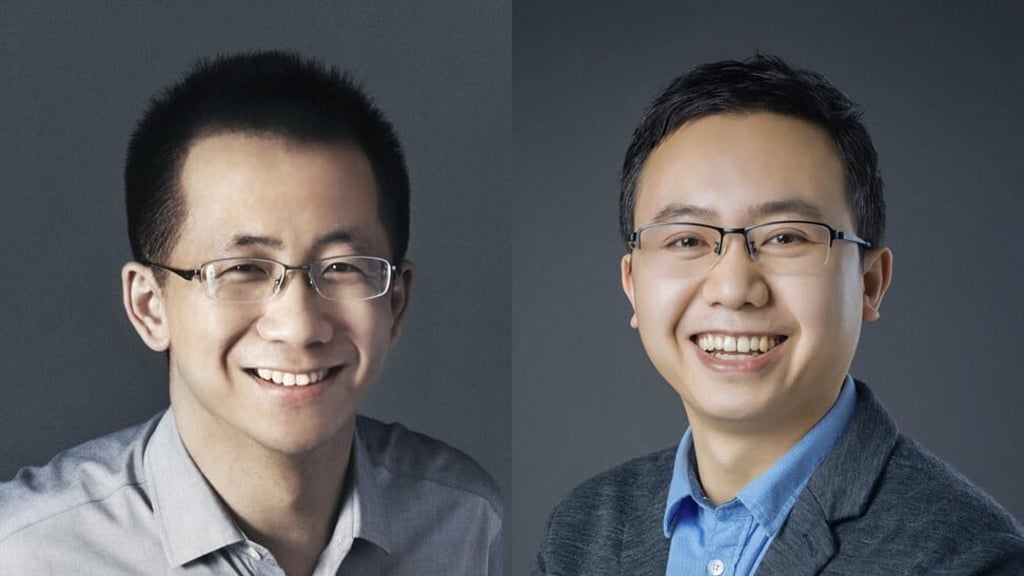Advertisement
ByteDance carves out TikTok as world’s most valuable technology unicorn finds way to satisfy US-China regulatory demands
- CEO Liang will oversee the finance of ByteDance, allowing CFO Chew Shou Zi to relinquish the role to focus on Tiktok unit
- The remainder of ByteDance’s operations will be reorganised into business units, according to a memo to staff obtained by South China Morning Post
Reading Time:3 minutes
Why you can trust SCMP
1

ByteDance will separate out its worldwide social media phenomenon TikTok into a stand-alone business unit, as chief executive Liang Rubo overhauls the world’s most valuable technology unicorn into six parts after founder Zhang Yiming decided to take a back-seat role.
Liang will oversee the finance of ByteDance, allowing chief financial officer (CFO) Chew Shou Zi to relinquish his finance role to focus on his job as chief executive of TikTok, the video-based social network service, and expand it into a technological platform, including such businesses as e-commerce, according to a memo to staff obtained by South China Morning Post.
Beijing-based ByteDance, the world’s first and only hectocorn – an unlisted company valued at more than US$100 billion – will also delineate its global operations from the myriad businesses in its home country through the separation of TikTok into an independent business unit.
Advertisement
The separation is an important step to help ByteDance and TikTok satisfy the regulatory demands of China and the United States over data privacy, storage and usage, when both governments are trying to exert oversight over the phenomenally successful app. TikTok had 1 billion monthly active users at the end of September, making it the most popular app worldwide by a Chinese company, while its China-only version Douyin chalked up 600 million daily users in August 2020.

Advertisement
The overhaul, nearly half a year since Zhang picked his university roommate Liang to oversee ByteDance’s daily operations, followed the drop in the company’s valuation in private equity markets from its peak of more than US$400 billion. The challenge of setting clear corporate, technology and legal boundaries between the businesses in China and overseas was the key hurdle in listing ByteDance, forcing the company to put its initial public offering (IPO) plan on hold until at least late 2022, the Post reported last month.
Advertisement
Select Voice
Choose your listening speed
Get through articles 2x faster
1.25x
250 WPM
Slow
Average
Fast
1.25x